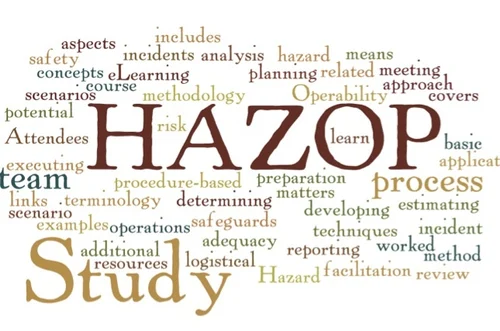What is End-to-End Encryption, and How It Ensures Secure Communication?
What is End-to-End Encryption, and How It Ensures Secure Communication?

End-to-end encryption (E2EE) is a secure communication mechanism that prohibits third-party access to data while it is being transported from one end system or device to another.
It is intended to keep data or messages secure and away from snoopers or hackers to avoid eavesdropping while communication is en route. An end-to-end encryption method encrypts a message in an alien that can only be read by the device intended to receive the message to reach this degree of security.
In E2EE, the data is encrypted on the sender’s system or device and can only be decrypted by the designated receiver. The message cannot be read or tampered with while it travels to its destination by an internet service provider (ISP), application service provider (ASP), hacker, or any other business or service.
End-to-end encryption is used by several prominent messaging service providers, including Facebook, WhatsApp, and Zoom. The choice to implement E2EE has caused criticism for these suppliers.
The technology makes it more difficult for service providers to disclose user information to authorities and may enable private communications with those engaged in illegal activities.
What does End-to-End Encryption Mean?
End-to-end encryption (E2EE) is a communications protocol that keeps messages confidential from all parties, including the messaging provider. When E2EE is utilized, communication is only visible in the decrypted form to the person sending and receiving the message.
The sender is one “end” of the communication, while the recipient is the other “end,” as the name implies. Consider end-to-end encryption to be analogous to a letter sent through the mail in a sealed envelope.
The person who sends the letter can read it, and the one who gets it can. Because the letter is still sealed in the envelope, postal workers are unable to read the end-to-end encrypted data.
The Advantages of Using End-To-End Encryption
One of the most obvious benefits of encryption is the higher level of security it provides for all of our digital conversations. The encryption needs two keys, and your correspondence is entirely safe even if the messaging server is compromised.
Simply said, a hacker would need physical access to your device to decode your communications properly. In this day and age, cybercriminals, commercial organizations, and government agencies routinely target unencrypted web communication.
There are also many webmail companies keen to snoop through your mailbox, acquiring critical information to improve tailored advertising. As a result, an increasing number of digital users are switching away from popular webmail and messaging services in favor of ones that employ E2EE. After all, everyone has the right to have private chats.
There is also the issue of performance, which mostly benefits service providers. The encryption is quick owing to the small quantity of data that must be transferred, and the data is simply redirected toward the destination rather than being processed at each step along the journey.
Encryption-Enabled Messaging Services Include:
In recent years, end-to-end encryption has grown more widespread in messaging and email programs. These platforms are always developing to meet the demands of the user. The programs we use needed to become more secure in the face of increased eavesdropping, major data breaches, and leaks.
The following are some of the most popular messaging applications and services that provide encrypted chat and emails.
Watsapp
It’s impossible to discuss encrypted texting without addressing WhatsApp’s encryption. This is the world’s most popular texting app. Is WhatsApp, however, safe enough? Its 1.5 billion consumers appear to believe so.
WhatsApp was among the first applications of its sort to use end-to-end encryption. That was in 2016, only two years after Facebook purchased it. Best of all, the user is not need to do anything; it is activated by default and cannot be disabled.
This is not to be confused with WhatsApp secret talking, which involves the installation of extra applications. The corporation discourages the usage of third-party applications due to worries that they may be used to spy on the user.
Telegram
Since its debut in the summer of 2013, this relatively new messaging software has grown in popularity. Telegram’s design distinguishes it from its competitors. From the outset, the platform provided the greatest levels of e2e encryption, and many believe it to be one of the most secure messaging applications on the market.
Telegram’s private conversations employ encryption technology and provide users with complete control over their communications history. This implies that if one person deletes a message, the app will advise the other party’s device to delete the same message.
Messages and files can also be assigned an expiration date, after which they are deleted from the system. Furthermore, private conversations are device-based rather than server-based. Your discussions are protected as long as you physically shield your device.
Viber
Viber began with the intention of dethroning WhatsApp as the most popular chat program. However, it has been slower to incorporate information security safeguards, and it wasn’t until version 6.0 that the app-enabled two-way security.
The security upgrade includes all app functions, including encrypted video chat as well as text communications. Setting it up is simple as long as you follow the creators’ instructions. Because Viber is voice call software, it can also be used to replace your phone’s conventional dialer app and add an extra layer of encryption to SMS.
iMessage
Look no further than your phone’s default messaging app if you want to encrypt iPhone texts. Apple’s iMessage is another popular encrypted texting service that uses end-to-end encryption.
For a long time, Apple has touted its privacy project, adding encryption on both ends to include everything from plain text communications to its video chat program FaceTime and even the Maps application.
The business claims that it designed the system so that customers may feel protected instead of worrying about if someone is watching their every move. With the release of version 11.0, the iOS platform has become associated with security.
Messenger on Facebook
Facebook Messenger is the most recent addition to the list of chat apps with end-to-end encryption messenger. In 2019, Facebook Messenger became encrypted, however, the functionality is not activated by default.
Instead, it is providing a hidden chat option to a subset of the worldwide user population. This functionality is still in its early stages, presently just allowing text chat, and is inaccessible to anybody who was not drawn randomly into the testing group.
Facebook promises that encryption will soon be available across all Messenger features, eliminating the need to manually encrypt communication by entering secret chat mode.
However, the choice to implement encrypted technology increased Facebook’s pressure.
End-to-end encryption, according to several Western nations, hampers security services from halting terrorist acts and arresting pedophiles. Others, however, fear that if governments prevail in their fight against E2EE, internet users’ private lives would be jeopardized.
Conclusion
Encryption is more than just a technical concern. It is now a significant aspect of a highly contentious political fight.
There are no disadvantages to increasing cyber security for the end user. End-to-end encryption is increasingly becoming necessary for any decent messaging service, and it may be as easy as a security code every time they log in.
Related Article:- Security Strategies to Protect Your Organization From Cyber Attacks







